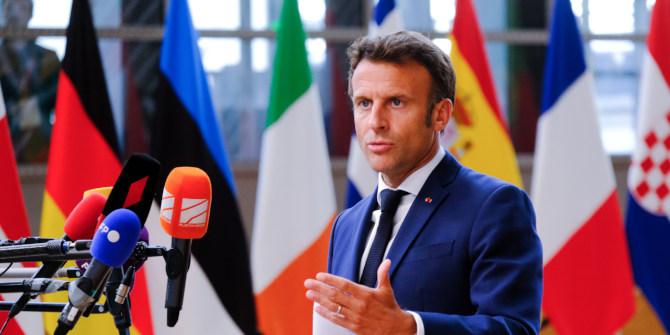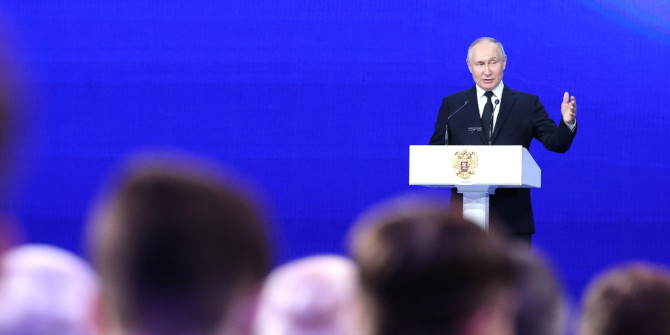What do we mean when we speak of “the West” in the context of the war in Ukraine? Spyros Economides and Andréa Delestrade write that while this term is frequently used, it remains difficult to define.
The use of the term, “the West”, in the context of the war in Ukraine is ubiquitous. But what does it actually mean in 2023? Is there a consensus on who and what comprises the West? Does it refer to the institutionalised version of the West: NATO and the EU? Or a broader grouping of like-minded democracies? Or those states who wish to uphold the remnants of a long undermined liberal international order? Or a set of geopolitical and material interests challenged by Russian expansionism?
Today’s “West” is not easy to capture and define. It is a malleable term. It is not geographically delimited: it spans West, East, North and South. Nor does it result from a coherent set of agreed values and interests from which there is no variation. Its core is still to be found in “transatlanticism” but even that concept and long-standing set of ties is threatened by divergence on both sides of the Atlantic: America First, for instance in the US; a fragmenting EU in Europe.
The European core of “the West” is dominated by the EU. The EU has been shaken by a series of immense challenges, such as Brexit, the Eurozone crisis and the flow of illegal immigrants. Perhaps most importantly, the fundamental values and founding principles of the EU have been tested by populism and democratic backsliding, not least in the cases of Hungary and Poland. Poland and Hungary are not consensual actors in the EU and have challenged some core “western” norms codified by the EU especially in the judicial sphere, notably freedom of speech, along with women’s rights, LGBT rights and the rights of migrants.
And yet, in the context of Ukraine, it is arguably countries like Poland who are increasingly more “western”. Once seen as peripheral actors, they have been mobilising the concept of the West and claiming to embody and define it, by welcoming Ukrainian refugees (which has brought controversies, given their conservative positions on non-Ukrainian refugees) and urging institutions like the EU and NATO to take stronger action. This brings agency to new “European” actors and shapes traditional understandings of the core of the concept of the West – perhaps shifting its centre of gravity.
Of course, in the short-term, this can only be done with the consent of the core. In the case of NATO, this includes the UK (often giving rise to the depiction of the “West” as Anglo-Saxon dominated). But in the EU context, the core in the context of Ukraine is less easy to define.
Germany has played a key role both rhetorically and in terms of mobilising resources. France has seen the war as an opportunity to reinforce the geopolitical importance of the EU and rekindle the idea of a broader Europe (and thus West?) through the European Political Community, of which it sees itself as the natural leader. The Baltic and Nordic states clearly view the Russian invasion of Ukraine as a threat to their security, while other EU members align themselves with the majority for a variety of reasons.
This suggests a varied set of positions within the EU in relation to Ukraine which are increasingly being defined based on interests rather than values. It has been argued that Ukraine, which occupies a liminal position (both geographically and in more ideational discourses), is being supported by “the West” because the challenge is from Russia. And Russia is primarily a material threat to European (and thus western security) rather than a normative threat.
It’s not “western values” that are at risk but western interests. This is partly because Russia’s challenge is a material one (energy) and a territorially expansionist one based on classic ideas of spheres of influence and balance of power politics. It is also partly the result of internal convulsions in “the West” and especially the EU, where the power of attraction and leading by example has waned (and/or been eroded internally), and geopolitical concerns and interests dominate.
Note: This article gives the views of the authors, not the position of EUROPP – European Politics and Policy or the London School of Economics. Featured image credit: NATO North Atlantic Treaty Organization (CC BY-NC-ND 2.0)





